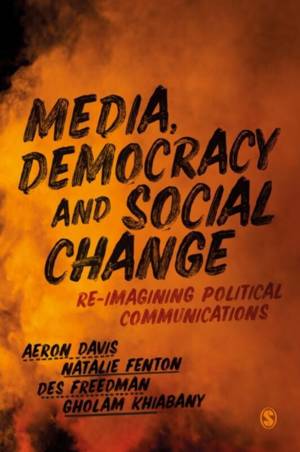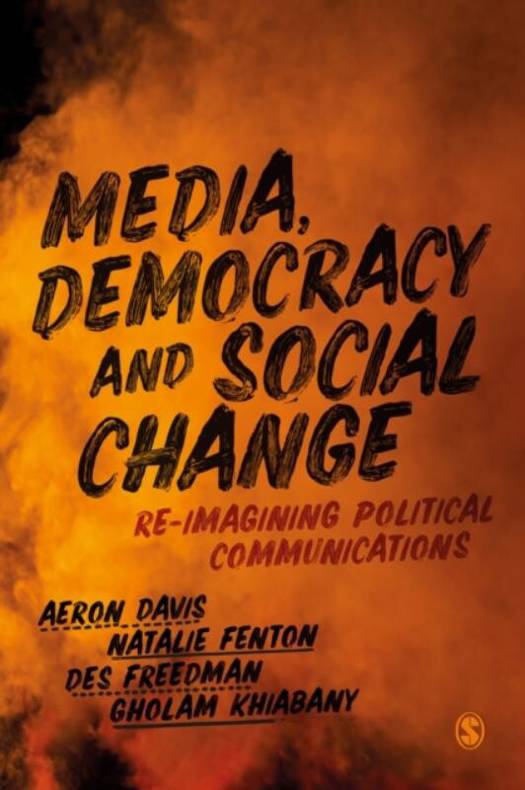
- Afhalen na 1 uur in een winkel met voorraad
- Gratis thuislevering in België vanaf € 30
- Ruim aanbod met 7 miljoen producten
- Afhalen na 1 uur in een winkel met voorraad
- Gratis thuislevering in België vanaf € 30
- Ruim aanbod met 7 miljoen producten
Zoeken
Media, Democracy and Social Change
Re-imagining Political Communications
Aeron Davis, Natalie Fenton, Des Freedman
Hardcover | Engels
€ 206,45
+ 412 punten
Uitvoering
Omschrijving
A timely and provocative exploration of contemporary political communication from a world-leading author team. In an age of "fake news" and Youtube algorithms it can be tempting to see politics as all mediation, but this book refocuses on the broader contexts or neoliberalism, elites, populism, activism and so on. There's more to Trump than Twitter.
Specificaties
Betrokkenen
- Auteur(s):
- Uitgeverij:
Inhoud
- Aantal bladzijden:
- 208
- Taal:
- Engels
Eigenschappen
- Productcode (EAN):
- 9781526456953
- Verschijningsdatum:
- 23/09/2020
- Uitvoering:
- Hardcover
- Formaat:
- Genaaid
- Afmetingen:
- 157 mm x 239 mm
- Gewicht:
- 453 g

Alleen bij Standaard Boekhandel
+ 412 punten op je klantenkaart van Standaard Boekhandel
Beoordelingen
We publiceren alleen reviews die voldoen aan de voorwaarden voor reviews. Bekijk onze voorwaarden voor reviews.











